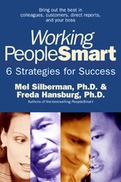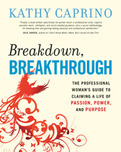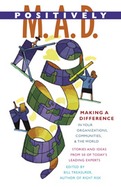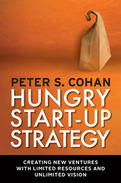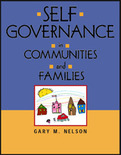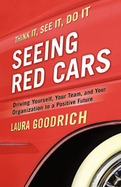2004
- Offers six easy-to-apply strategies for becoming people-savvy at work, with over 50 examples of the strategies in action
- No complex personality typologies or classification systems to learn-these are universal techniques that work on everyone, and in any situation
- From the authors of PeopleSmart: Developing Your Interpersonal Intelligence
2005
- Brings together 50 of Berrett-Koehler's top authors to share real world stories about making positive and lasting change, despite the challenges of our times
- Emphasizes people, actions, and ideas that are "mad"-out-of-the-ordinary, unexpected, counter-intuitive, defiant, offbeat, and edgy
Entrepreneurs are hungry. But it's not just because they're living on ramen and adrenaline while they pour their all into their business. Peter Cohan has found it's something deeper: a hunger to create the kind of world they want to work in.
Entrepreneurs are hungry. But it’s not just because they’re living on ramen and adrenaline while they pour their all into their business. Peter Cohan has found it’s something deeper: a hunger to create the kind of world they want to work in. To leave a legacy, they build carefully with limited resources and maintain control of the venture’s direction. For years, students have told Cohan that the seminal business strategy guide, Michael Porter’s Competitive Strategy, was too big-company focused. So Cohan—who once worked with Porter—has written the first business strategy book to address start-ups’ very different challenges. Cohan focuses on six key start-up choices—setting goals, picking markets, raising capital, building teams, gaining market share, and adapting to change—explaining the unique rules start-ups must follow. For example, when setting goals, large corporations try to maximize their long-term return on equity, but resource-poor start-ups have to plan by setting a series of short-term goals—and how they do this will mean the difference between blazing a trail or flaming out. When entering a new market, well-fed companies can invest substantial time and capital before ever launching a product, but hungry start-ups must get an adequate prototype in front of customers fast, get feedback, and quickly develop a viable business model or they’ll starve to death. For each of these six areas, Cohan provides a decision-making approach and lively case studies of what actual entrepreneurs have done. He extracts hard-hitting lessons not only for start-ups but also for investors and even established companies. Hungry Start-up Strategy offers a full menu of vital information for anyone seeking to cook up a thriving business from scratch.- The first research-based book on business strategy for start-ups
- Based on Cohan's venture investment experience and on his interviews with over 150 start-up CEOs
- Offers specific approaches for six critical start-up decisions
- Click here for the press release
Entrepreneurs are hungry. But it's not just because they're living on ramen and adrenaline while they pour their all into their business. Peter Cohan has found it's something deeper: a hunger to create the kind of world they want to work in. To leave a legacy, they build carefully with limited resources and maintain control of the venture's direction.
For years, students have told Cohan that the seminal business strategy guide, Michael Porter's Competitive Strategy, was too big-company focused. So Cohan -- who once worked with Porterhas written the first business strategy book to address start-ups' very different challenges.
Cohan focuses on six key start-up choicessetting goals, picking markets, raising capital, building teams, gaining market share, and adapting to changeexplaining the unique rules start-ups must follow. For example, when setting goals, large corporations try to maximize their long-term return on equity, but resource-poor start-ups have to plan by setting a series of short-term goalsand how they do this will mean the difference between blazing a trail or flaming out. When entering a new market, well-fed companies can invest substantial time and capital before ever launching a product, but hungry start-ups must get an adequate prototype in front of customers fast, get feedback, and quickly develop a viable business model or they'll starve to death.
For each of these six areas, Cohan provides a decision-making approach and lively case studies of what actual entrepreneurs have done. He extracts hard-hitting lessons not only for start-ups but also for investors and even established companies. Hungry Start-up Strategy offers a full menu of vital information for anyone seeking to cook up a thriving business from scratch.
We are entering the 21st century in a period of great uncertainty and change. People are wary of government and have lost confidence in social institutions-from social welfare and schools to healthcare programs. That loss of confidence has undermined the community and family life that is the very foundation of our society. Self-Governance in Communities and Families shows how individuals can reconnect to and revitalize their social institutions so that they are effective in serving the needs of all.
Gary Nelson identifies the existing social models we are moving away from and explores the new, emerging pattern of relationships we are shifting to in our social institutions. He reveals why open dialogue and partnerships between people and their social institutions are essential to the well-being of families and thriving communities. He describes why social regeneration is best pursued through these partnerships, with people and stakeholders within communities taking positive action to develop and protect the well-being of their families and the health of their communities.
Applying both business and social science concepts to the day-to-day management of social institutions, Nelson offers a proven, practical method-community self-governance dialogues-for engaging people in the redesign and revitalization of social institutions. The author shows how-by creating opportunities for individuals and families to proactively participate in developing a strategic plan for how their institutions are managed, run, and evaluated-this dialogue method ultimately empowers people to take control of their own lives. He also reveals how active participation in these open dialogues ignites creative ideas and new energy for the redirection and reshaping of those institutions.
With numerous examples and anecdotes, Nelson illustrates the values, beliefs, and principles that underlie how we learn and make decisions in a self-governing democratic culture. He provides tips for shared learning and accountability, ownership and governance, and the creation of a culture of self-governance. And he offers advice on how to maintain an ongoing engagement and partnership between the public and its social institutions.
Communities and families can be strengthened when each of us takes responsibility for ourselves and works in partnership with others to restore our social institutions. Self-Governance in Communities and Families sets forth clear, doable strategies for fostering both responsibility and ownership through dialogue and collaboration between public and private sectors.
- Provides community leaders and others with a framework for bringing all parts of a community and the "system" together around the common purpose of strengthening communities and families
- Outlines a philosophy of self-governance and empowerment for at-risk families, individuals, and neighborhood communities
- Offers managers a dynamic, adaptive model for opening up, supporting, and steering the process of social change
2011


